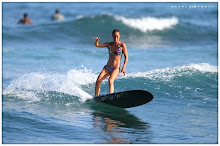On Jan. 10-11th, 2013 I attended Donna Ching’s Facilitative
Skills for Collaborative Leaders workshop. It was absolutely worth it! and by far one of the most productive and
influential workshops I have attended that I can directly apply to my
profession. The content covered will benefit
my personal growth, management, and work ethics. I’ve come to realize that the process for
planning a meeting comes with experience, but also knowing the proper tools to use. From Donna’s experience and the mana’o she
shared, proper meeting facilitation should include the following:
- Gathering expectations prior to the meeting
- Being on time
- Having an agenda
- Proper introductions
- Setting ground rules
- Having and communicating the purpose
- Staying impartial as a facilitator
- Legitimizing comments or contributions
- Redirecting participants
- Brainstorming, clustering, and decision making
- Capturing the group’s comments through the group memory board, which is gathered by a recorder.
I look forward to attending another workshop and applying the skills I learned to my job to promote a collaborative work environment.
Donna shared an article with the class (Collaborative Leadership for Building Trust & Driving Business Results), which can be found at the link below:
A Hui Hou for now,
Jenny Tanaka

Comments